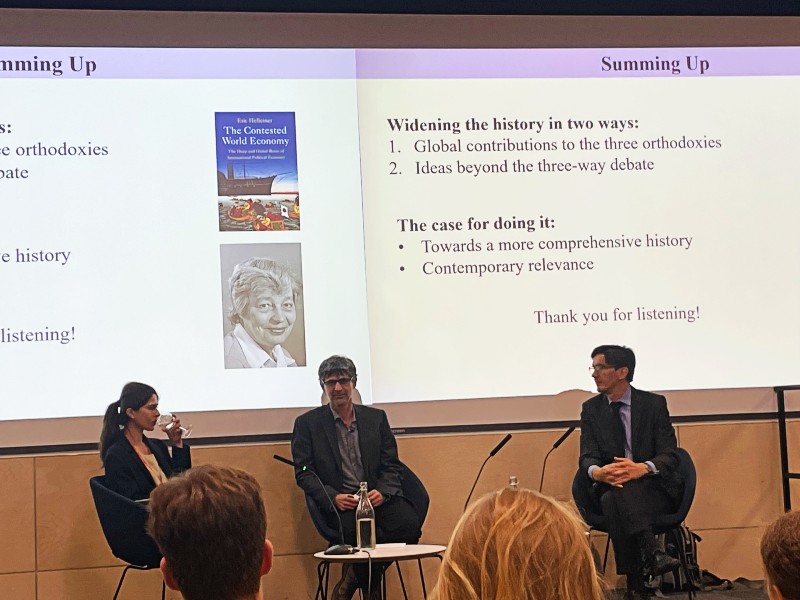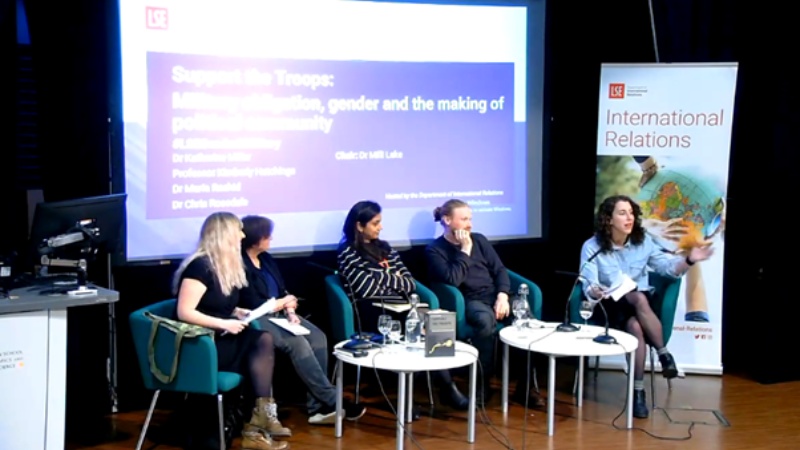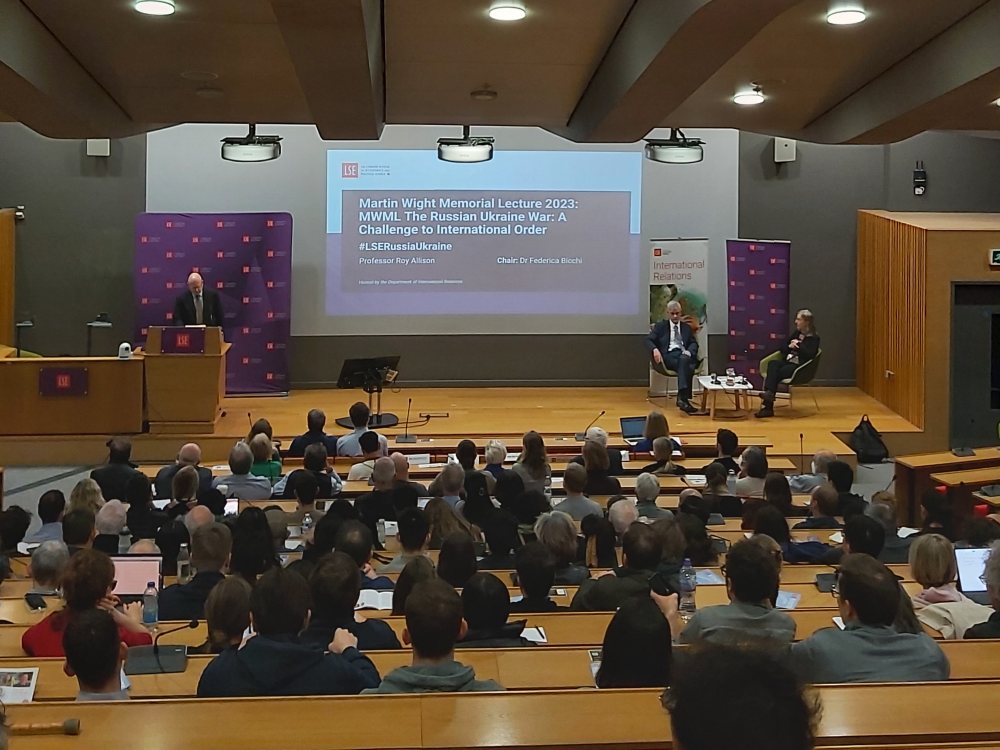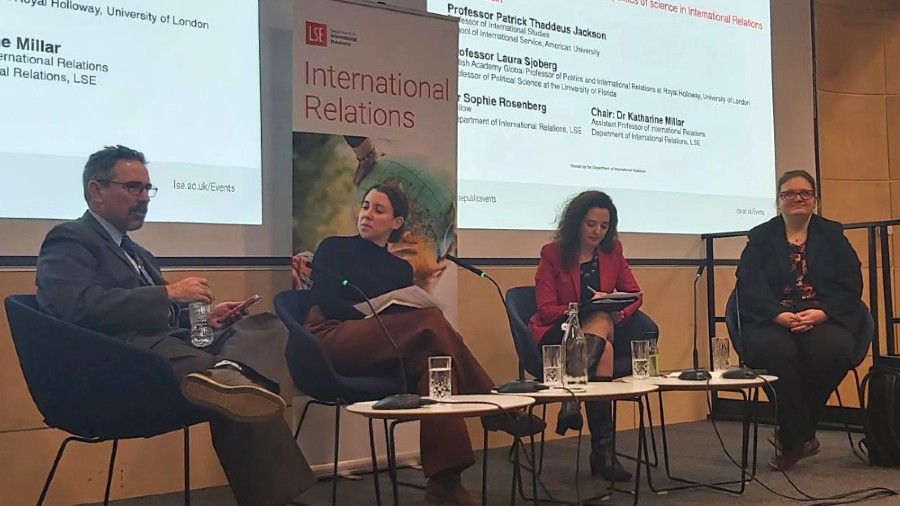On Thursday 2 November 2023, authors Professor Henry Farrell of Johns Hopkins, and Professor Abraham L Newman of Georgetown University, joined us for a book launch and discussion of their forthcoming book Underground Empire: how America weaponized the world economy. The panel also consisted of political economist Ann Pettifor and Professor of International Relations at SOAS Leslie Vinjamuri. The panel discussed debates around the weaponisation of the global economy with the sustainability of these tactics, how different major and emerging powers are reacting, and what role the UK has to play in both utilising and mitigating these tactics. The event was chaired by Dr Nikhil Kalyanpur, Assistant Professor in the Department of International Relations at LSE.
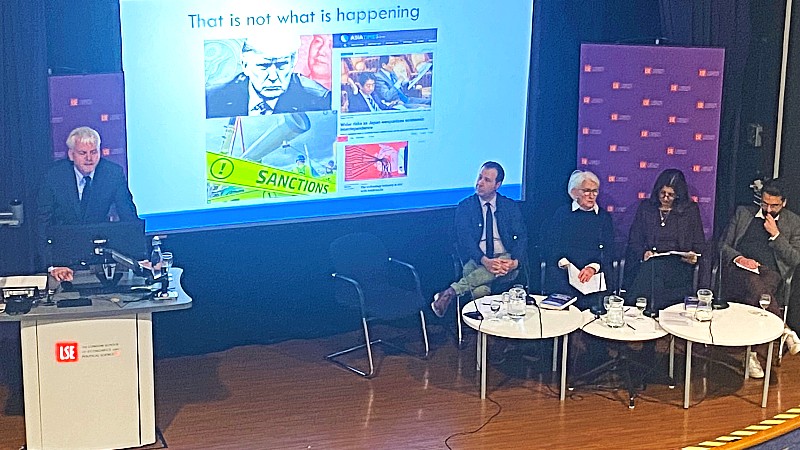
L to R: Henry Farrell, Abraham L Newman, Ann Pettifor, Leslie Vinjamuri and Nikhil Kalyanpur (Chair)
The benign view of the liberal order is dying. So begins the talk lead by Abraham L Newman and Henry Farrell – professors from John Hopkins and Georgetown, respectively – at LSE last Thursday to discuss their new book, Underground Empire: how America weaponized the world economy. Promising that their work is intended to ‘read like a thriller’, Farrell and Newman paint a stark picture of a new kind of conflict, one in which American structural dominance in the financial and information networks that made globalisation possible have slowly come to be seen as coercive tools.
Chaired by LSE’s Dr Nikhil Kalyanpur, and accompanied by political economist Ann Pettifor and SOAS Professor Leslie Vinjamuri, the talk delivered as a deep-dive into the ‘weaponised interdependence’ that is shaping our world. Tracing its ‘origin story’ to America’s use of global surveillance systems following 9/11, Farrell and Newman argued that this new reality has emerged piecemeal and unwittingly since the new millennium, often as a result of the actions of private actors and transnationals more interested in maximising profits than they were in becoming means towards geopolitical ends. Two decades later, and the global markets and supply chains once hailed as major incentives for cooperation have been transformed into arenas for superpower competition, as battle lines are drawn over Taiwanese semiconductors, SWIFT sanctions, Chinese cellphone heiresses and even Elon Musk’s use of Starlink in Ukraine.
Far from being ‘the end of history’ heralded by liberals, the 21st century has seen the return of great power politics, and now Europe and the Global South must decide how to respond.
Far from being ‘the end of history’ heralded by liberals, the 21st century has seen the return of great power politics, and now Europe and the Global South must decide how to respond. Looming over proceedings is the upcoming US election, or as one presentation slide read—The ‘Trumpinator’. Uncertain times lie ahead. Finally, what of the verdict on Underground Empire? Pettifor put it best – must read.
Event report by Javier Romero-Bonaplata, MSc International Relations



